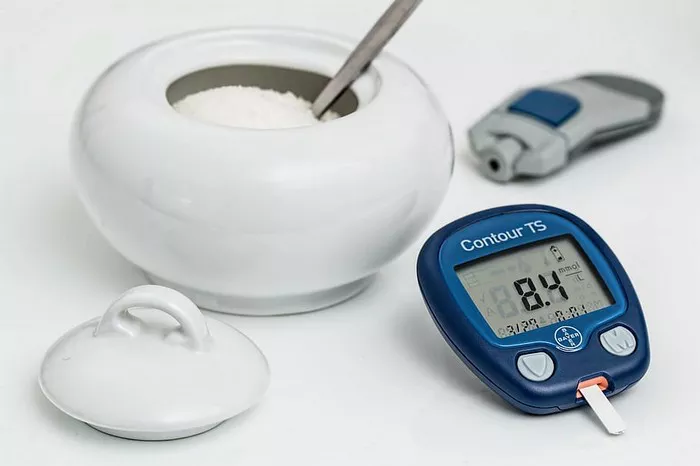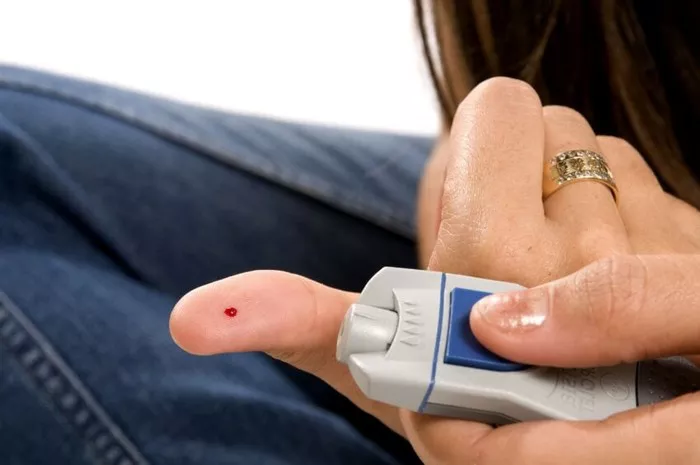Insulin resistance, a hallmark of type 2 diabetes, is a complex metabolic condition characterized by the body’s reduced sensitivity to insulin, the hormone responsible for regulating blood sugar levels. As diabetes specialists, it’s imperative to delve into the intricacies of monitoring glycemic control, and one of the key metrics in this endeavor is Hemoglobin A1c (HbA1c) level. In this comprehensive guide, we will explore the significance of HbA1c, its role in diabetes management, factors influencing its levels, and what constitutes a normal range.
What is HbA1c?
HbA1c is a crucial marker used in the long-term monitoring of blood glucose levels in individuals with diabetes. It measures the average blood sugar levels over the past two to three months by assessing the percentage of hemoglobin that is glycated, or bound to glucose molecules. Hemoglobin is the protein in red blood cells responsible for carrying oxygen throughout the body. When glucose levels are elevated in the bloodstream, some of it binds irreversibly to hemoglobin, forming HbA1c.
The Significance of HbA1c in Diabetes Management
Maintaining optimal blood sugar levels is paramount in preventing the complications associated with diabetes, such as cardiovascular disease, neuropathy, nephropathy, and retinopathy. HbA1c serves as a reliable indicator of glycemic control over time, offering insights into the effectiveness of diabetes management strategies, including lifestyle modifications, medication regimens, and dietary interventions.
Understanding Normal HbA1c Levels
The American Diabetes Association (ADA) recommends target HbA1c levels for different populations:
- For individuals without diabetes: Typically, HbA1c levels fall within the range of 4% to 5.6%. This range indicates normal glucose metabolism and minimal risk of developing diabetes.
- For individuals with diabetes: The target HbA1c level varies depending on individual factors such as age, comorbidities, and diabetes duration. However, in general:
- For most adults with diabetes: A target HbA1c of less than 7% is recommended to reduce the risk of long-term complications while balancing the risk of hypoglycemia.
- For older adults or those with comorbidities: A less stringent target, such as HbA1c levels between 7% and 8%, may be appropriate to minimize the risk of hypoglycemia and improve quality of life.
- For children and adolescents: Stricter targets, typically aiming for HbA1c levels below 7.5% to 8.5%, are recommended to reduce the risk of complications in the long term.
These targets should be individualized based on factors such as patient preference, life expectancy, presence of complications, and hypoglycemia risk.
Factors Influencing HbA1c Levels
Several factors can influence HbA1c levels, leading to variations in its interpretation:
- Blood Glucose Variability: Wide fluctuations in blood sugar levels can affect HbA1c readings. Even if the average blood glucose appears within target range, frequent spikes and dips can result in elevated HbA1c levels.
- Red Blood Cell Turnover: Conditions affecting red blood cell lifespan, such as anemia or certain medications like erythropoietin-stimulating agents, can impact HbA1c measurements. Shortened red blood cell lifespan can lead to falsely low HbA1c levels, while prolonged lifespan can yield falsely elevated results.
- Hemoglobin Variants: Some individuals may have hemoglobin variants (e.g., hemoglobinopathies) that interfere with the accurate measurement of HbA1c. In such cases, alternative methods for assessing glycemic control, such as continuous glucose monitoring (CGM), may be necessary.
- Pregnancy: During pregnancy, hormonal changes and increased insulin resistance can affect HbA1c levels. Target ranges for pregnant individuals may differ from those for non-pregnant populations.
- Chronic Kidney Disease (CKD): Reduced kidney function can alter the metabolism and clearance of glucose and hemoglobin, influencing HbA1c levels. In individuals with CKD, additional markers such as glycated albumin or fructosamine may provide more accurate assessments of glycemic control.
Clinical Implications of Abnormal HbA1c Levels
Abnormal HbA1c levels can have significant clinical implications:
- High HbA1c Levels (Hyperglycemia): Elevated HbA1c levels (>7%) indicate poor glycemic control and an increased risk of diabetes-related complications. In such cases, intensification of treatment, including medication adjustments, lifestyle modifications, and education, is warranted to achieve target levels and reduce the risk of long-term complications.
- Low HbA1c Levels (Hypoglycemia): Conversely, HbA1c levels below target range may suggest increased risk of hypoglycemia, especially if achieved through aggressive glucose-lowering strategies. Individuals experiencing frequent hypoglycemic episodes should undergo comprehensive assessment to adjust treatment regimens and minimize risk while maintaining glycemic control.
Conclusion
HbA1c is a valuable tool in the management of diabetes, providing insights into long-term glycemic control and guiding treatment decisions. Understanding the normal range of HbA1c and factors influencing its levels is essential for healthcare professionals involved in diabetes care. By individualizing treatment goals and strategies based on patient characteristics and preferences, healthcare providers can optimize outcomes and improve the quality of life for individuals living with diabetes. Regular monitoring of HbA1c levels, along with comprehensive diabetes management, plays a pivotal role in preventing complications and promoting overall health and well-being.
Related topics:



























